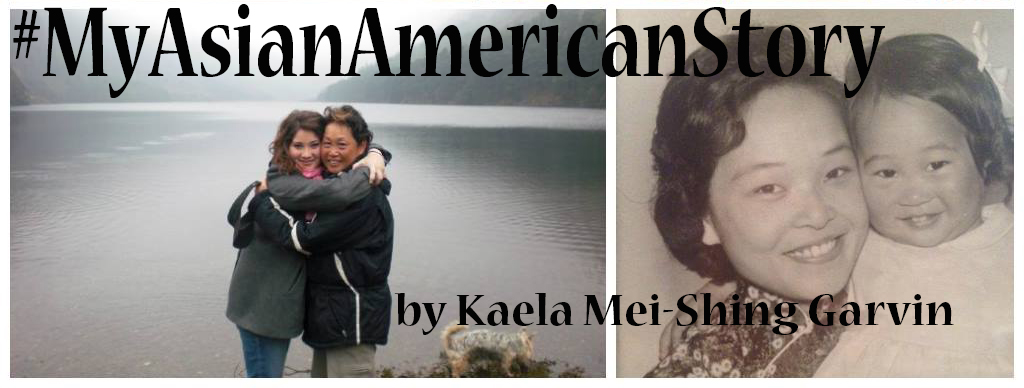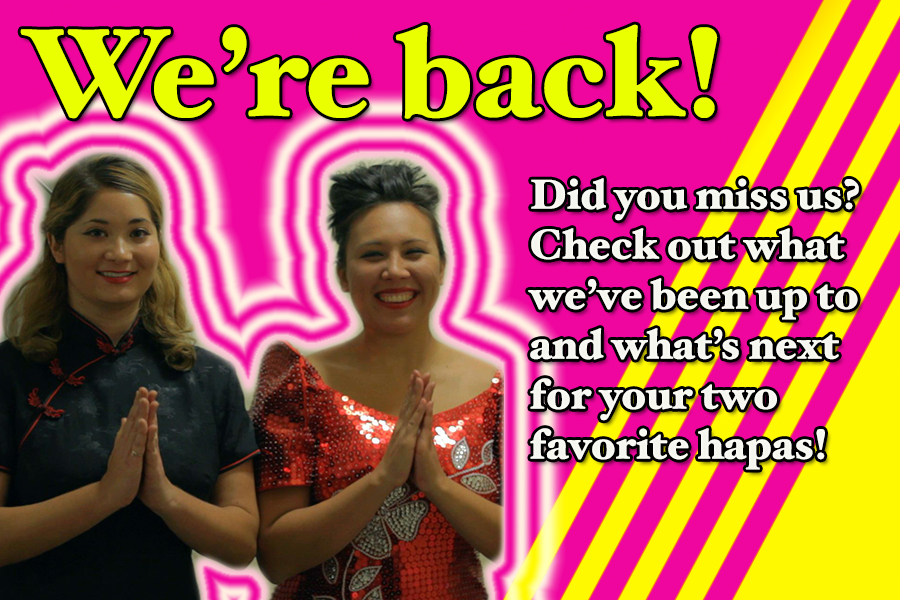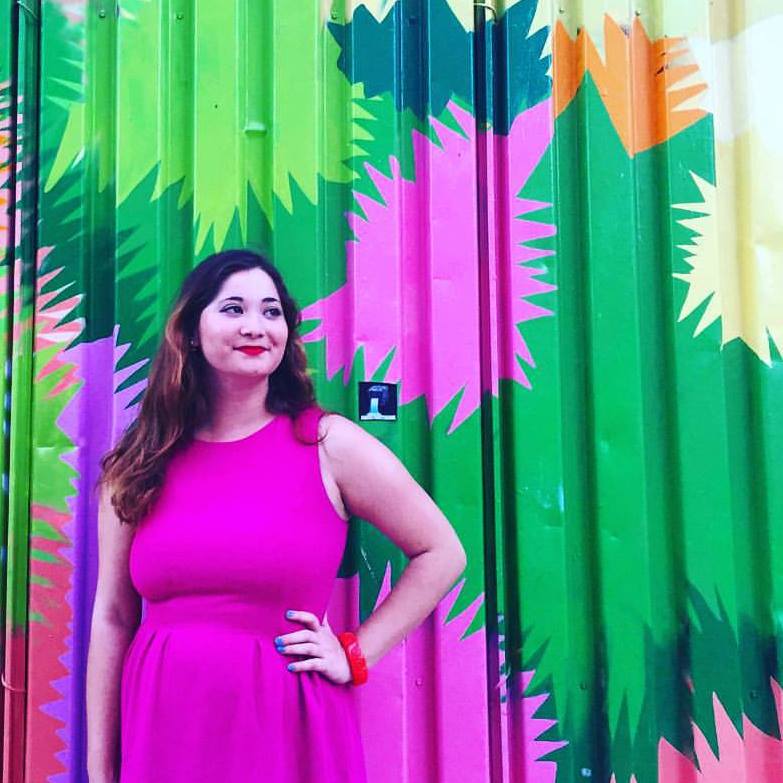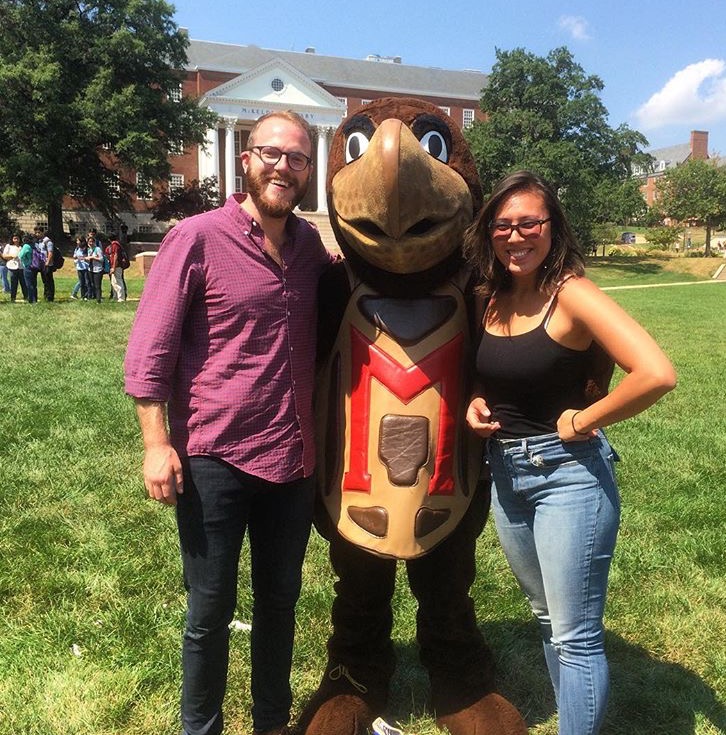“This is the last place I saw my mother,” my grandmother told me, holding my hand. In March of 2005, my family traveled to China to see the homeland with my po-po, or maternal grandmother. At the moment, we were walking down the Long Corridor, a centuries-old covered walkway at Beijing’s Summer Palace. “I was a little older than you are now,” she continued, “and the Revolution was starting up. My sister was a member of the Red Guard, and she would tell anything she heard to the authorities. My mother couldn't talk openly to anyone at home, so we met here.”
My grandmother didn't speak of the Cultural Revolution or the Red Guard often, and we hadn't covered it in school. I gleaned most of my information from books I read. At nine or ten, I showed my po-po Red Scarf Girl, a memoir of a student who’d joined the Red Guard. The horrors author Ji-Li Jiang witnessed during the Cultural Revolution deeply affected me, and I wanted to share that with Po-Po. I was disappointed she couldn’t make it through the book. It wasn’t until later that I realized the emotions it might have brought up for her; I didn't realize the extent to which she'd lived through it.
It was through books again that I learned about what contributed to my grandmother’s flight from China: programs Chairman Mao implemented such as the Cultural Revolution. It was through books and oral history that I learned about the Sent-down Youth: 20 million Chinese students, including my mother’s cousin, were prohibited from attending university and instead sent to rural towns for their education. It was through books that I learned about the Mao-induced Great Famine, which killed 76 million Chinese citizens. In comparison, the tragic Irish Great Famine canonized in my history classes resulted in one million deaths. To my memory, we didn't cover modern Chinese history in my classes. Once the country was open to Westerners, once the Boxer Revolution paved the way for the republicanization of "the Orient," as it were, it seemed the curriculum stopped.
As a teenager, my grandmother was sent to study in Hong Kong at the nursing school where they eventually shot Love is A Many-Splendored Thing. She was about my age when she visited her family in mainland China, taking a walk with her mother down the Long Corridor just as I did in 2005. She was about my age when she took a boat from Hong Kong to San Francisco by herself. She was about my age when she cried as the boat passed under the Golden Gate Bridge.
Life in America presented its own set of challenges: my grandmother had spent her teenage years at essentially a boarding school. Breakfast was served in her room and other meals in the mess hall. Her nursing uniform was cleaned by the in-house staff. She once told me that when she first arrived to California, she used to put her clothes on the floor and hope that someone would come by and pick them up--the apple apparently doesn’t fall very far from the tree.
In the meantime, my grandfather, or gong-gong, came of age in Hong Kong as well. His family owned a jewelry store on the island. He and my grandmother must have been there at the same time, but they never met until the late 1950s, a world away in San Francisco. My po-po said their mutual friends knew she was interested in him when she would pose the question, sometimes even to her date for an event: "will David be attending?"
They married and my mother was born in June 1960, years after my grandmother had landed on American soil. My gong-gong taught my po-po to cook. He started a medical supply business, and my mother and uncles sometimes worked weekends packaging the equipment he sold. They put in the hard toil that’s inherent in the American dream. When my grandfather passed away, my grandmother returned to nursing to support her three children, then started her own real estate business, which is still operating in the Bay Area to this day.
On August 24, 2015, presidential candidate Jeb Bush clarified his stance on using the derogatory term “anchor babies.” It wasn’t meant to offend “the Hispanic vote” he’s worked so hard to gain, he said. “Frankly,” he continued, “it’s more related to Asian people coming into our country, having children in that organized efforts, taking advantage of a noble concept with birthright citizenship...Nothing about what I’ve said should be viewed as derogatory towards immigrants at all.”
Just three days later, presidential candidate Donald Trump put on a Mickey Rooney-worthy “Asian” accent when discussing foreign policy with China and Japan in Iowa. “When these people walk in the room, they don’t say, ‘Oh, hello! How’s the weather? It’s so beautiful outside. Isn’t it lovely?’” he observed. “They say, ‘We want deal!’” His comments were greeted with laughter. He went on to lambast Bush’s position on birth tourism and its connection to Asian American immigrants on Twitter, but would not back down from his position to deny illegal immigrants’ children birthright citizenship.
I have never particularly concerned myself with the race for the Republican presidential nomination, though I watched the first debate hosted on Fox News during which the candidates spouted a volume of homophobic, xenophobic, racist and misogynistic nonsense. The current two frontrunners for the party, though, have proven themselves to not only misunderstand America but to parrot the same incorrect assumptions about Asian immigrants which have plagued our population since before the Chinese Exclusion Act of 1882. 2015’s presidential race has had little to no coverage of issues pertaining to Asian Americans; this first stab at it is disappointing, to say the least.
As Jenn at Reappropriate wrote, “based on sheer numbers alone birth tourism is not a major contributing factor to the undocumented immigrant population in the United States or elsewhere in the world.” In fact, spending time discussing the issue at all detracts from more pressing immigrant rights discussions or domestic policies. Birth tourism, the phenomenon to which Jeb Bush alluded in his statement, produces somewhere between 36 and 70 thousand children born in America annually; there are about 11 million undocumented immigrants in the country as a whole.
Erroneously weighted as they may be, Bush and Trump’s “anchor baby” stances bring to light a more important truth. In reaction to their comments, writer Jason Fong created #MyAsianAmericanStory, a hashtag movement in which thousands of users shared their families’ stories of immigration, discrimination and involvement in US politics. The value of Twitter politics are often hotly debated, but there’s no question that the internet offers a voice those historically silenced, discounted, or ignored. For me, that possibility is powerful. With no real place to share our history in our country’s curriculum or media, online resources are intrinsic to making connections within the wide diaspora of “Asian America.” How else would I have learned about Daniel Wu, who at his first election at eighteen years old was stopped by the question, “Do you know you have to be American to vote?” Or Bruce Reyes- Chow, whose Chinese American soldier grandfather was told he might get shot because he looked Japanese? Or even Kristina Wong, one of my favorite performance artists whose work combatting mental illness in the Asian American community is too important to gloss over in one sentence? (Check out her work!)
I count Jeb Bush and Donald Trump’s comments as a favor: perhaps like Trump's opinions on the Latinx community, the open racism towards our community will sway Asian American voters, 45% of which are not affiliated with any political party. As Alton at Unhyphenate writes, ours is “the fastest growing immigrant population, fastest growing electorate, fastest growing undocumented immigrant population, and ...an increasingly unified voting bloc.” When my grandmother told me her about last encounter with her mother in Beijing, I hadn’t yet learned how to deal with strangers that would ask rude questions about my heritage. I hadn’t learned about any of the Asian American history I’ve since discovered mostly via the internet. The creation of 2 Girls | 1 Asian was aimed to tell the story of female friendship, but also to elaborate on the Asian American experience in ways that aren’t currently represented by mainstream media. With any luck, Bush and Trump’s stances will continue to encourage us to share our experiences and to cast our votes for someone who has all of America’s best interests at heart.
My grandmother didn't speak of the Cultural Revolution or the Red Guard often, and we hadn't covered it in school. I gleaned most of my information from books I read. At nine or ten, I showed my po-po Red Scarf Girl, a memoir of a student who’d joined the Red Guard. The horrors author Ji-Li Jiang witnessed during the Cultural Revolution deeply affected me, and I wanted to share that with Po-Po. I was disappointed she couldn’t make it through the book. It wasn’t until later that I realized the emotions it might have brought up for her; I didn't realize the extent to which she'd lived through it.
It was through books again that I learned about what contributed to my grandmother’s flight from China: programs Chairman Mao implemented such as the Cultural Revolution. It was through books and oral history that I learned about the Sent-down Youth: 20 million Chinese students, including my mother’s cousin, were prohibited from attending university and instead sent to rural towns for their education. It was through books that I learned about the Mao-induced Great Famine, which killed 76 million Chinese citizens. In comparison, the tragic Irish Great Famine canonized in my history classes resulted in one million deaths. To my memory, we didn't cover modern Chinese history in my classes. Once the country was open to Westerners, once the Boxer Revolution paved the way for the republicanization of "the Orient," as it were, it seemed the curriculum stopped.
As a teenager, my grandmother was sent to study in Hong Kong at the nursing school where they eventually shot Love is A Many-Splendored Thing. She was about my age when she visited her family in mainland China, taking a walk with her mother down the Long Corridor just as I did in 2005. She was about my age when she took a boat from Hong Kong to San Francisco by herself. She was about my age when she cried as the boat passed under the Golden Gate Bridge.
Life in America presented its own set of challenges: my grandmother had spent her teenage years at essentially a boarding school. Breakfast was served in her room and other meals in the mess hall. Her nursing uniform was cleaned by the in-house staff. She once told me that when she first arrived to California, she used to put her clothes on the floor and hope that someone would come by and pick them up--the apple apparently doesn’t fall very far from the tree.
In the meantime, my grandfather, or gong-gong, came of age in Hong Kong as well. His family owned a jewelry store on the island. He and my grandmother must have been there at the same time, but they never met until the late 1950s, a world away in San Francisco. My po-po said their mutual friends knew she was interested in him when she would pose the question, sometimes even to her date for an event: "will David be attending?"
They married and my mother was born in June 1960, years after my grandmother had landed on American soil. My gong-gong taught my po-po to cook. He started a medical supply business, and my mother and uncles sometimes worked weekends packaging the equipment he sold. They put in the hard toil that’s inherent in the American dream. When my grandfather passed away, my grandmother returned to nursing to support her three children, then started her own real estate business, which is still operating in the Bay Area to this day.
On August 24, 2015, presidential candidate Jeb Bush clarified his stance on using the derogatory term “anchor babies.” It wasn’t meant to offend “the Hispanic vote” he’s worked so hard to gain, he said. “Frankly,” he continued, “it’s more related to Asian people coming into our country, having children in that organized efforts, taking advantage of a noble concept with birthright citizenship...Nothing about what I’ve said should be viewed as derogatory towards immigrants at all.”
Just three days later, presidential candidate Donald Trump put on a Mickey Rooney-worthy “Asian” accent when discussing foreign policy with China and Japan in Iowa. “When these people walk in the room, they don’t say, ‘Oh, hello! How’s the weather? It’s so beautiful outside. Isn’t it lovely?’” he observed. “They say, ‘We want deal!’” His comments were greeted with laughter. He went on to lambast Bush’s position on birth tourism and its connection to Asian American immigrants on Twitter, but would not back down from his position to deny illegal immigrants’ children birthright citizenship.
I have never particularly concerned myself with the race for the Republican presidential nomination, though I watched the first debate hosted on Fox News during which the candidates spouted a volume of homophobic, xenophobic, racist and misogynistic nonsense. The current two frontrunners for the party, though, have proven themselves to not only misunderstand America but to parrot the same incorrect assumptions about Asian immigrants which have plagued our population since before the Chinese Exclusion Act of 1882. 2015’s presidential race has had little to no coverage of issues pertaining to Asian Americans; this first stab at it is disappointing, to say the least.
As Jenn at Reappropriate wrote, “based on sheer numbers alone birth tourism is not a major contributing factor to the undocumented immigrant population in the United States or elsewhere in the world.” In fact, spending time discussing the issue at all detracts from more pressing immigrant rights discussions or domestic policies. Birth tourism, the phenomenon to which Jeb Bush alluded in his statement, produces somewhere between 36 and 70 thousand children born in America annually; there are about 11 million undocumented immigrants in the country as a whole.
Erroneously weighted as they may be, Bush and Trump’s “anchor baby” stances bring to light a more important truth. In reaction to their comments, writer Jason Fong created #MyAsianAmericanStory, a hashtag movement in which thousands of users shared their families’ stories of immigration, discrimination and involvement in US politics. The value of Twitter politics are often hotly debated, but there’s no question that the internet offers a voice those historically silenced, discounted, or ignored. For me, that possibility is powerful. With no real place to share our history in our country’s curriculum or media, online resources are intrinsic to making connections within the wide diaspora of “Asian America.” How else would I have learned about Daniel Wu, who at his first election at eighteen years old was stopped by the question, “Do you know you have to be American to vote?” Or Bruce Reyes- Chow, whose Chinese American soldier grandfather was told he might get shot because he looked Japanese? Or even Kristina Wong, one of my favorite performance artists whose work combatting mental illness in the Asian American community is too important to gloss over in one sentence? (Check out her work!)
I count Jeb Bush and Donald Trump’s comments as a favor: perhaps like Trump's opinions on the Latinx community, the open racism towards our community will sway Asian American voters, 45% of which are not affiliated with any political party. As Alton at Unhyphenate writes, ours is “the fastest growing immigrant population, fastest growing electorate, fastest growing undocumented immigrant population, and ...an increasingly unified voting bloc.” When my grandmother told me her about last encounter with her mother in Beijing, I hadn’t yet learned how to deal with strangers that would ask rude questions about my heritage. I hadn’t learned about any of the Asian American history I’ve since discovered mostly via the internet. The creation of 2 Girls | 1 Asian was aimed to tell the story of female friendship, but also to elaborate on the Asian American experience in ways that aren’t currently represented by mainstream media. With any luck, Bush and Trump’s stances will continue to encourage us to share our experiences and to cast our votes for someone who has all of America’s best interests at heart.




 RSS Feed
RSS Feed
